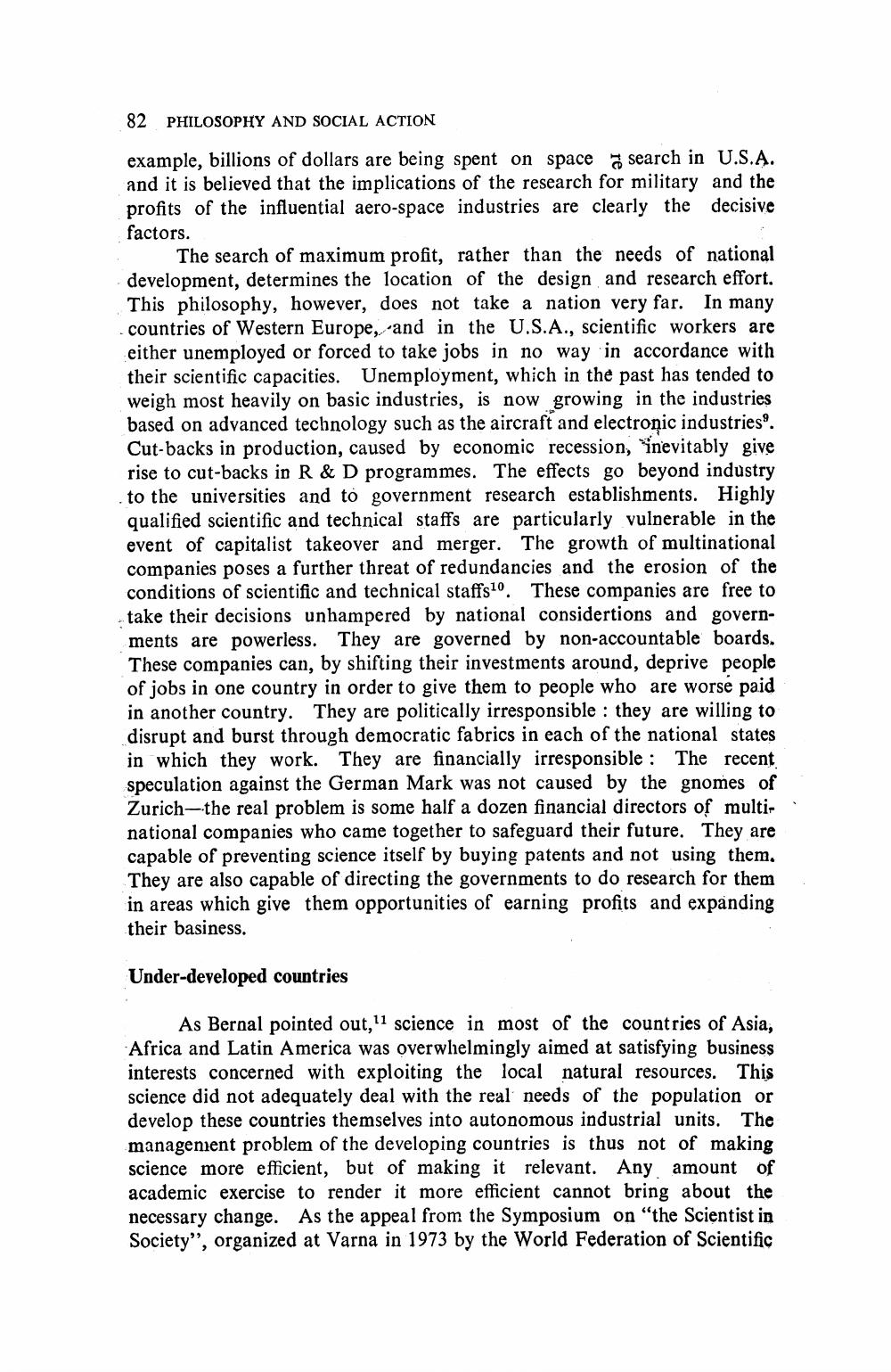________________
82 PHILOSOPHY AND SOCIAL ACTION
example, billions of dollars are being spent on space search in U.S.A. and it is believed that the implications of the research for military and the profits of the influential aero-space industries are clearly the decisive factors. . The search of maximum profit, rather than the needs of national development, determines the location of the design and research effort. This philosophy, however, does not take a nation very far. In many countries of Western Europe, and in the U.S.A., scientific workers are either unemployed or forced to take jobs in no way in accordance with their scientific capacities. Unemployment, which in the past has tended to weigh most heavily on basic industries, is now growing in the industries based on advanced technology such as the aircraft and electronic industries. Cut-backs in production, caused by economic recession, inevitably give rise to cut-backs in R & D programmes. The effects go beyond industry to the universities and to government research establishments. Highly qualified scientific and technical staffs are particularly vulnerable in the event of capitalist takeover and merger. The growth of multinational companies poses a further threat of redundancies and the erosion of the conditions of scientific and technical staffs10. These companies are free to take their decisions unhampered by national considertions and governments are powerless. They are governed by non-accountable boards. These companies can, by shifting their investments around, deprive people of jobs in one country in order to give them to people who are worse paid in another country. They are politically irresponsible : they are willing to disrupt and burst through democratic fabrics in each of the national states in which they work. They are financially irresponsible : The recent speculation against the German Mark was not caused by the gnomes of Zurich-the real problem is some half a dozen financial directors of multinational companies who came together to safeguard their future. They are capable of preventing science itself by buying patents and not using them. They are also capable of directing the governments to do research for them in areas which give them opportunities of earning profits and expanding their basiness.
Under-developed countries
As Bernal pointed out, 11 science in most of the countries of Asia, Africa and Latin America was overwhelmingly aimed at satisfying business interests concerned with exploiting the local natural resources. This science did not adequately deal with the real needs of the population or develop these countries themselves into autonomous industrial units. The management problem of the developing countries is thus not of making science more efficient, but of making it relevant. Any amount of academic exercise to render it more efficient cannot bring about the necessary change. As the appeal from the Symposium on “the Scientist in Society”, organized at Varna in 1973 by the World Federation of Scientific




